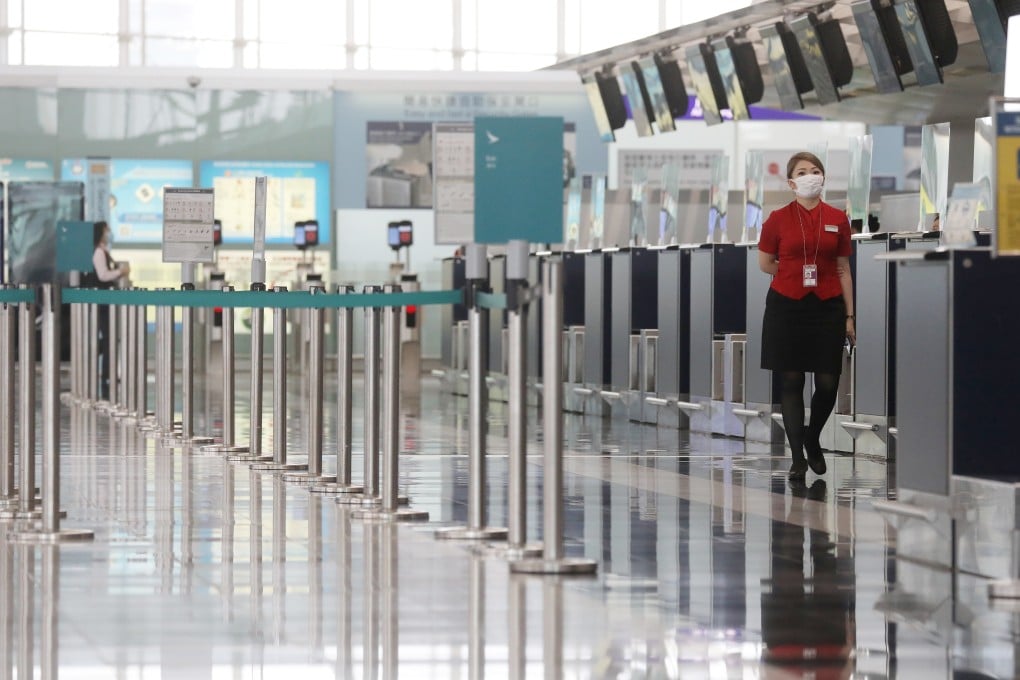Advertisement
Cathay Pacific’s rights issue less appealing after stock slump and third wave of coronavirus infections
- Resurgence of the coronavirus in Hong Kong drags stock of the embattled airline to the lowest in 19 years, clouding recovery outlook
- Decline in Singapore Airlines stock even after its US$11 billion cash infusion suggests no immediate relief for Cathay Pacific investors
Reading Time:3 minutes
Why you can trust SCMP

Cathay Pacific may have won some breathing space after shareholders signed off on its HK$39 billion (US$5 billion) rescue plan but investors only need to look at its peer Singapore Airlines to know that more pain is in store.
More than 99 per cent of independent shareholders who voted on Monday supported Cathay Pacific’s HK$11.7 billion cash call. A HK$27.3 billion bailout by the Hong Kong government was also approved, handing it a critical lifeline.
Yet, a third wave of coronavirus infection in the city is holding back any show of relief. Hong Kong recorded more than 200 new local cases since July 5, pressuring the carrier’s already weak sub-10 per cent capacity run. Level France this week decided to cease operations, saying passenger demand will not return to 2019 levels until 2023 at the earliest, according to various media reports.
Advertisement
“The third wave would prolong its expected path to recovery,” said Kenny Tang, chief executive at Royston Securities. “Initially, there was an expectation that there could be some sort of travel bubble to help reboot its passenger traffic. Now, Cathay Pacific can only play a passive role on when it could actually turn the corner.”

01:29
Hong Kong government to bail out Cathay Pacific with HK$30 billion in loans and direct stake
Hong Kong government to bail out Cathay Pacific with HK$30 billion in loans and direct stake
Cathay Pacific’s stock has slumped 21 per cent since unveiling its June 9 recapitalisation plan, a reminder of the industry’s continued struggle. Global passenger load factor reached a new record-low for the month of May, while the recent increase in Covid-19 cases has weakened bookings, according to the International Air Transport Association, an industry guild.
Advertisement
Advertisement
Select Voice
Choose your listening speed
Get through articles 2x faster
1.25x
250 WPM
Slow
Average
Fast
1.25x